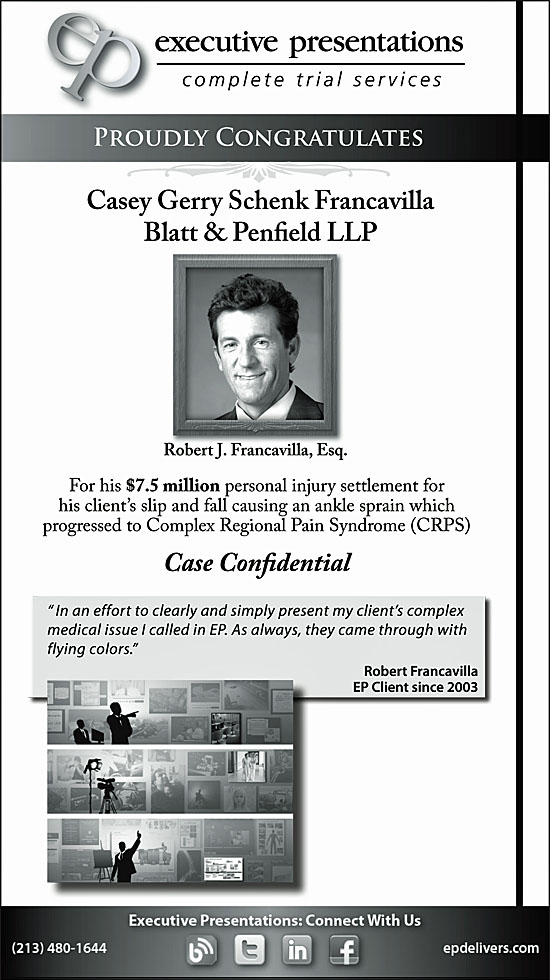
EP Congratulates: Bailey & Partners and Akin Gump Strauss Hauer & Feld LLP
March 12, 2013
EP Congratulates: Casey Gerry Schenk Francavilla Blatt & Penfield LLP
April 5, 2013In the annual State of the Judiciary address Monday, California Chief Justice Tani Cantil-Sakauye (pictured at right) decried the decimation of funding for state courts and taught lawmakers a lesson in legal history, the Los Angeles Times is reporting today.
Cantil-Sakauye offered the landmark “right to counsel” 1963 case of Gideon v. Wainwright. Clarence Gideon was arrested and charged in Florida with breaking and entering with intent to commit a misdemeanor, a felony in that state. He was too poor to hire a lawyer, and his request for counsel to be appointed was denied because under Florida law, the only time the court can appoint counsel to represent a defendant is when that person is charged with a capital offense. Forced to represent himself he was found guilty, and sentenced to five years in prison. His subsequent appeal to the Florida supreme court was denied.
From his cell, making use of the prison library and writing in pencil on prison stationery, Gideon appealed to the U.S. Supreme Court arguing that he had been denied counsel and, therefore, his Sixth Amendment rights, as applied to the states by the Fourteenth Amendment, had been violated.
The Supreme Court held that the right to the assistance of counsel was a fundamental one, essential for a fair trial, thereby emphasizing the procedural safeguards needed for due process of law. In this sense, the meaning is specifically that no one, regardless of wealth, education or class, should be charged with a crime and then be forced to face his accusers in court without the guidance of counsel. The court remanded the case to the Supreme Court of Florida for “further action not inconsistent with this decision.” Gideon was then retried with appointed counsel. He was acquitted.
“Justice requires a court,” Cantil-Sakauye said, lamenting the closures of courts up and down the state because of budget cuts. “But what we once counted on — that courts would be open, available and ready to dispense prompt justice — no longer exists in California.”
From the L.A. Times article:
During the last five years, California’s courts have lost 65% of their general funding. Many courts have closed. Hours have been cut, and court fees have skyrocketed. Only 1% of the general fund goes to California’s judicial branch, the largest court system in the nation, she said.
“I submit to you that equal access to justice for 38 million Californians cannot be had for a penny on the dollar,” the chief justice said in the televised address.
The full article is at www.latimes.com, available here.
Photo Caption: California Supreme Court Chief Justice Tani Cantil-Sakauye.
Los Angeles Times photo by Jeff Chiu, Associated Press.

